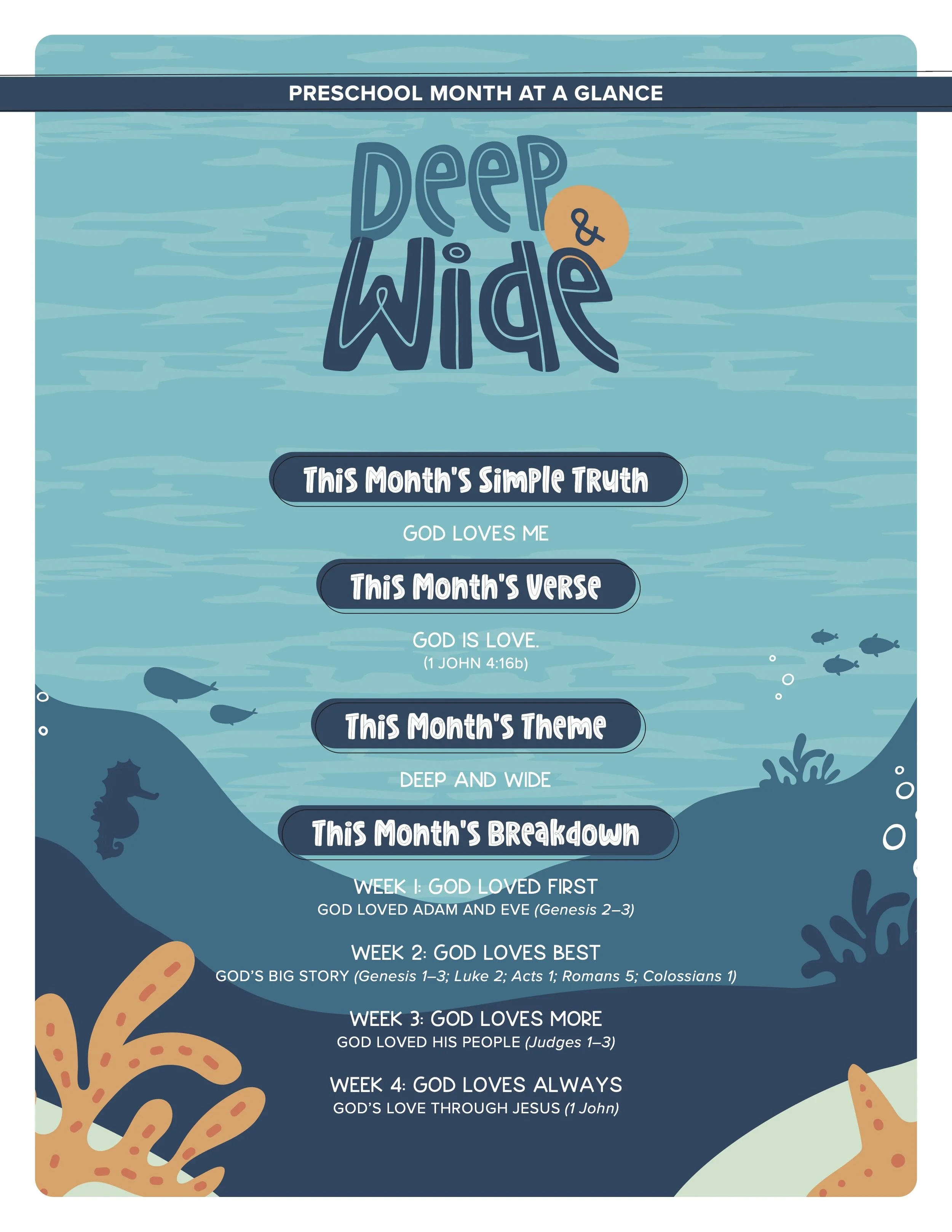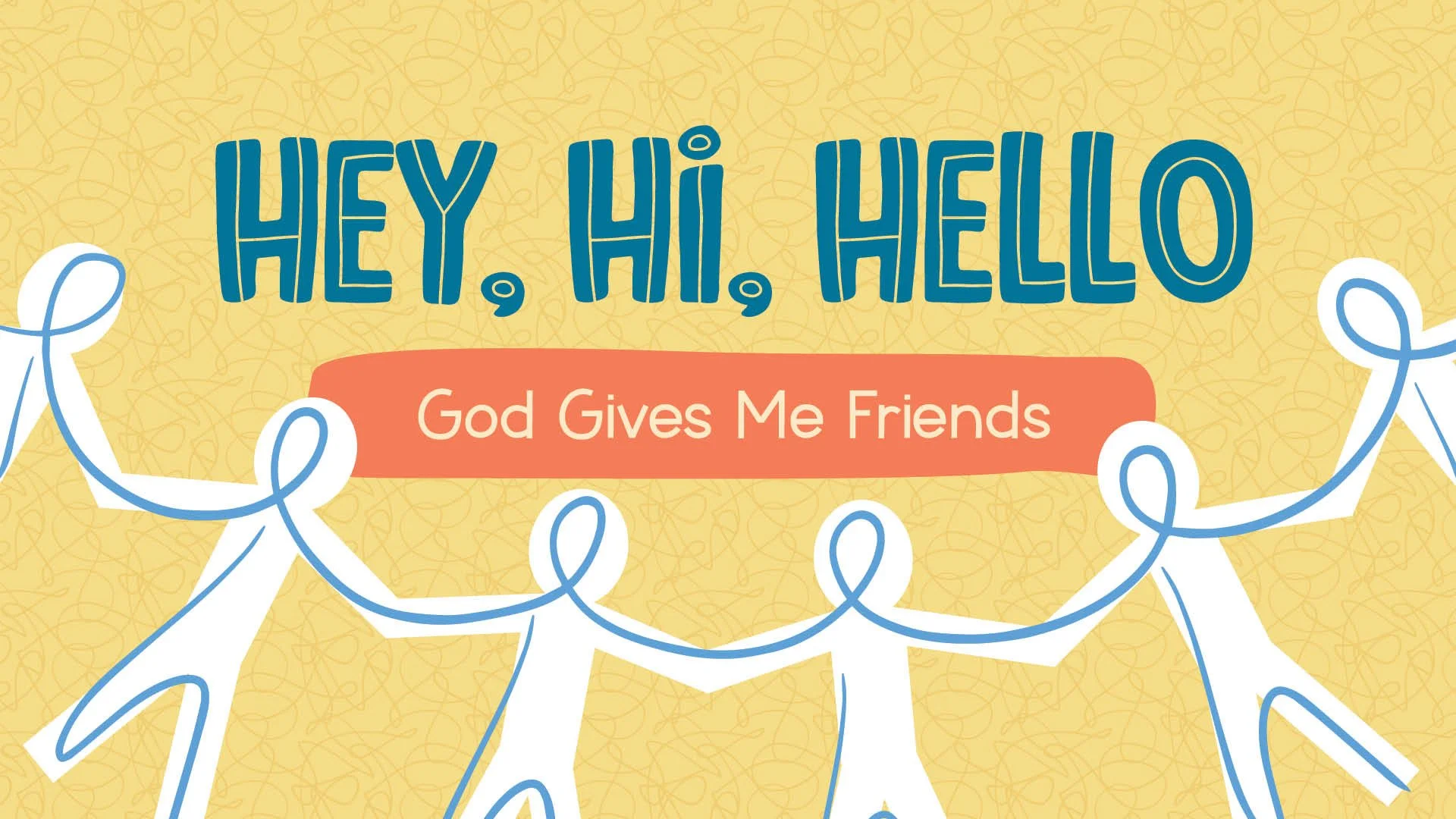This month at a glance
Sprouts will have a family worship Sunday this Sunday Feb. 2nd.
Stop in at the check-in table for some new coloring pages.
Hi Familiies!
Here are some updates for this coming Sunday
This month in seedlings…
In the month of February we are teaching preschoolers the Big Deal, “Deep and Wide! God Loves Me!” Preschoolers will see incredible examples of God’s love throughout the Bible as they learn that God loved first, loves best, more, and always.
This week preschoolers will hear the story of Adam and Eve from Genesis 2–3 as we teach that God loved first. God made Adam and Eve and gave them this rule because He knew what was best for them. Even when Adam and Eve disobeyed God and suffered consequences for their sin, God still loved them. In His love and kindness, God sent Adam and Eve out of the garden so they would not eat from the tree of life and live in their broken state forever. Preschoolers will see that God loved us first, even before we were born. As a result, we can know that God’s love comes from who He is, not because of anything we do.
Check out Hyfi At Home for a fun activity and family engagement around last week’s Bible story.
Highlight of the Week
Session 1: God Loved First Read: Genesis 3 Highlight: Genesis 3:22-23
Reflect: How do you see God’s love reflected through sin’s consequences?
A) Growth in humility and honesty
B) Conviction of sin that leads to life change
C) Deeper dependence on God
Pray: God, thank You for loving me even when I sin. Help me see Your love when I face consequences for sin. Help me always remember Your amazing love and that You loved me first.
Connect: What is something good that has come out of something bad? How does this show the character of God?
…and in SPROUTS
Sprouts will have a family worship Sunday. Stop in at the check in table for some new coloring pages.
This February we are going to teach the Simple Truth, “I Am Loved” with the Theme Power Up. Kids will love the fun old school video game art and graphics we’ll include each week. More than that, they will grow and be encouraged as we teach that God loved first, God loves best, God loves more, and God loves always.





